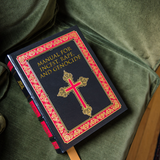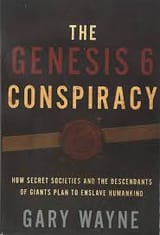>>516596636 (OP)
Numbers 31 records Israel’s battle against the Midianites.
Earlier, in Numbers 25, the Midianites had deliberately led Israel into idolatry and sexual immorality through the worship of Baal of Peor. This caused God’s wrath to break out, killing 24,000 Israelites (Num. 25:9).
The Lord commands Moses in Numbers 25:16–18 to “harass the Midianites and strike them down” because they had seduced Israel into unfaithfulness and tried to destroy them spiritually.
By Numbers 31, this command is carried out. Israel wages war against Midian, and after the battle, they bring back captives, livestock, and plunder.
The males (even the boys) were executed to prevent future vengeance and resurgence of the Midianite people who had sought Israel’s destruction.
The women who had known men were killed because they were the very ones who had participated in seducing Israel into idolatry (cf. Numbers 25:1–3).
The young girls were spared — not for abuse (though critics sometimes read it that way), but likely for integration into Israelite households as servants, and in some cases eventual marriage (regulated by strict laws in Deuteronomy about treatment of captives, Deut. 21:10–14).
Judgment on Midian: This is not random violence, but God’s judgment on a people who had tried to spiritually corrupt Israel and destroy them.
Holiness of Israel: God was guarding Israel against idolatry, which constantly threatened their covenant relationship with Him.
Historical Setting: Ancient Near Eastern warfare was brutal, but God placed certain limits and structures on Israel (e.g., treatment of captives in Deut. 21, restrictions against cruelty in war).
Numbers 31:17–18 is not a blanket endorsement of violence but a specific act of divine judgment on Midian, directly tied to their role in leading Israel into sin (Numbers 25). The passage reflects both the severity of sin (idolatry = covenant betrayal) and God’s holiness in protecting His people.
 9/19/2025, 10:48:18 PM
No.516596636
>>516596912
>>516597343
>>516597517
>>516597522
>>516598070
>>516598293
>>516598432
>>516598762
>>516598975
>>516599082
>>516599226
>>516601939
>>516602737
>>516603226
>>516603292
>>516603432
>>516604003
>>516604279
>>516604619
>>516604778
>>516605538
>>516606095
>>516606227
>>516606529
>>516606814
>>516606879
>>516607464
>>516607681
>>516607795
>>516608522
>>516608887
>>516609508
>>516609989
>>516610097
9/19/2025, 10:48:18 PM
No.516596636
>>516596912
>>516597343
>>516597517
>>516597522
>>516598070
>>516598293
>>516598432
>>516598762
>>516598975
>>516599082
>>516599226
>>516601939
>>516602737
>>516603226
>>516603292
>>516603432
>>516604003
>>516604279
>>516604619
>>516604778
>>516605538
>>516606095
>>516606227
>>516606529
>>516606814
>>516606879
>>516607464
>>516607681
>>516607795
>>516608522
>>516608887
>>516609508
>>516609989
>>516610097











